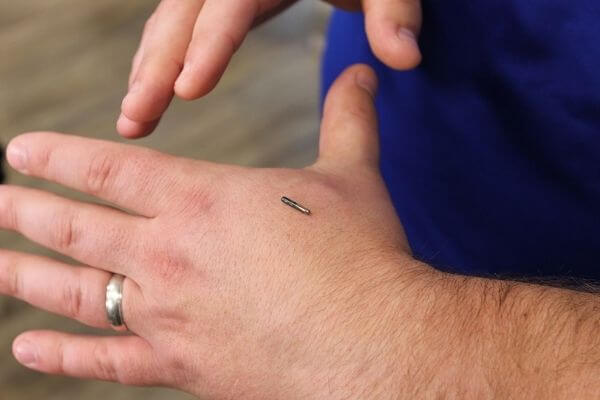It is reported that about 80 of the 250 employees at Three Square Market in River Falls have been implanted a rice-sized microchip inside their body.
McMullan said the idea came from a trip to Sweden in 2017. According to AFP reported in May, nearly 3,000 of the country’s 10 million residents chose to implant microchips for purchasing train tickets, using printers and vending machines, and accessing to buildings. Swedish microbiologist Ben Libberton said: “In Sweden, people are very familiar with this technology.”
Each RFID chip is implanted under the skin between the thumb and forefinger and works by scanning the information by an RFID reader. At Three Square Market, each RFID chip is connected to employee’s bank account so that they can swipe their hand instead of credit cards to buy food and drinks, and the bills are automatically paid from their cards.
The chip user scans the commodities that they want to buy at the kiosk in the lounge, and lift their hand near the RFID reader, this process is just like how the consumer uses a smart phone to pay for the goods to complete the transaction.
This feature raises privacy and security issues. A potential risk is someone could try to scan a chip with a unauthorized RFID reader and stole the information in the chip. McMullan said that his chip only contains access control authority and basic medical information, important personal data in the chip is encrypted. Official department also claimed that the data in the microchip is encrypted and the chip does not have GPS, so it cannot be used to track employees or obtain private information.
Todd Westby, chief executive officer of Three Square Market, said this technology will be standardized eventually so that you can use it as a passport, public transport ticket, credit cards, etc.
.png)
